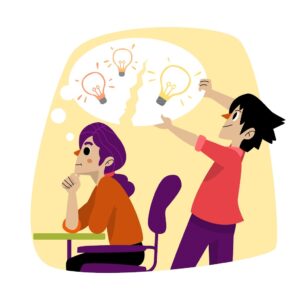Developing critical thinking skills is an important aspect of enhancing your analytical and problem-solving abilities. If you have question in your mind that how to develop critical thinking skills; Here are some strategies you can employ to develop and improve your critical thinking skills:
Question assumptions: Challenge your own assumptions and those presented by others. Ask yourself why you hold a certain belief or why something is considered true. Evaluate the evidence and reasoning behind these assumptions.
Seek diverse perspectives: Engage with a variety of viewpoints and perspectives on a particular issue. This helps you understand different angles and forces you to think beyond your own biases.
Analyze and evaluate information: Practice analyzing and evaluating information from various sources. Look for evidence, credibility, and potential biases. Consider the quality and reliability of the information before accepting it as true or valid.
Practice active listening: Develop your listening skills by paying close attention to others’ arguments or ideas. Ask probing questions to clarify their reasoning and ensure you fully understand their perspectives.
Reflect on your own thinking: Regularly reflect on your own thoughts, beliefs, and actions. Identify any cognitive biases or logical fallacies you may be prone to and actively work to overcome them.
Solve problems creatively: Engage in problem-solving activities that require you to think outside the box. Seek alternative solutions and evaluate their pros and cons critically.
Develop logical reasoning: Enhance your logical reasoning skills by studying logic and logical fallacies. Understand how arguments are constructed and how to identify flawed reasoning.
Practice evidence-based decision-making: Base your decisions on solid evidence rather than personal biases or emotions. Seek out relevant data, facts, and research to support your choices.
Embrace uncertainty: Recognize that not all problems have clear-cut solutions or answers. Learn to tolerate ambiguity and develop strategies for dealing with uncertainty.
Engage in debates and discussions: Participate in debates and discussions where you can articulate and defend your ideas while considering opposing viewpoints. This helps sharpen your critical thinking skills and exposes you to different perspectives.
Continuously learn: Foster a mindset of continuous learning and curiosity. Read widely, explore new subjects, and expose yourself to different disciplines to broaden your knowledge base and thinking skills.
Understand that developing critical thinking is an ongoing process that requires practice and patience. By consciously applying these strategies in various aspects of your life, you can gradually enhance your ability to think critically and make sound judgments
